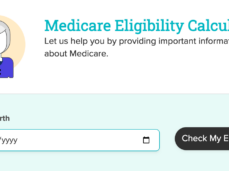
Can Medicare Part A or B Be Canceled, Waived, or Deferred?
There are a few unique situations which may cause you to consider waiving Medicare Part A - like using your HS...
Our Medicare experts have curated a resource center that will help you figure out how to enroll in Medicare. Speak to a Medicare Expert today.

It's common to have both Medicare and Medicaid at the same time, making you "dua...

Most Americans qualify for Medicare when they turn 65. But you can qualify befor...

Once you sign up for Medicare, you will generally not need to renew anything, pr...

There's a widely held belief that Medicare automatically starts for every when t...

There are a few unique situations which may cause you to consider waiving Medicare Part A - like using your HS...

Whether you're considering Medicare Supplement or Medicare Advantage, you cannot be denied supplemental insura...

This guide will help you learn more about Medicare. We cover the ins and outs of Original Medicare, Medicare A...

How do you choose the right Medicare coverage? A look at Medigap, Medicare Advantage, Medicare Cost Plans and ...

While Medicare spouse coverage technically isn't allowed, there are times when you can gain Medicare eligibili...

Discover Medicare plan options for Snowbirds to ensure flexible, multi-state coverage with national plans, and...

You may be eligible for Medicare sooner if you qualify due to a disability, amyotrophic…

Medicare has multiple enrollment periods. How do you know which one is the right one for you? Learn when you c...

Most Americans qualify for Medicare when they turn 65. But you can qualify before 65 too while others wait unt...

Are you eligible for Medicare? If you’re not sure, or you want to learn how to enroll, you’ve come to the ...